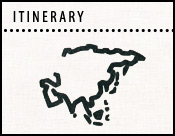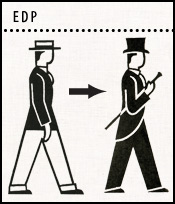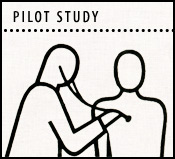Special Report: Innovation In Bangalore – Janaagraha
When we wheeled up to the unassuming, and somewhat brutal exterior of the Janaagraha building in Bangalore, we were not quite sure what to expect inside, and it seemed to us a not-for-profit institution, which purported to do an impossible number of things for free, which in America would certainly be done at great expense by government-contracted consulting firms. Furthermore, they were performing these valuable services, in addition to huge initiatives mobilizing voters, and raising public awareness of relevant social and political issues. It seemed too good to be true. What kind of sham were they running inside this brutalist concrete building?
Inside, we were quite floored to find no sham at all. Just a whip sharp team of knowledgeable, passionate, and extremely motivated personnel, working hard on a Saturday to make Bangalore, and India as a whole, a better place to live.
The office was big, but not that big. Same goes for the team. The power was out in Bangalore at that moment, a reasonably common occurrence, but the office seemed hard at work in the window lit offices, working fiercely under still fans on computers that ran from the building’s back-up generators.
Our first meeting was with the voting and political literacy initiative. India is the largest democracy in the world, and many accuse it of crumbling under its own weight, unable to function due purely to its own massive scale and complexity. “This does not have to be so,” the folks at Janaagraha posit. And they are doing much to put their time and money where their mouth is.
In India, the makeup of a particular rural community is relatively static, but in the large cities like Bangalore, massive migration from rural areas to the metropolis make registering voters, disseminating information, and overseeing the implementation of projects quite difficult. Consequently, voter turnout in urban India lags significantly behind that in the rural areas. Janaagraha is doing a few things to help. First of all it has a dedicated team researching issues, aggregating local views, and disseminating relevant information to urban voters. It uses this data to promote certain candidates and attempts to streamline and simplify administrative tasks (like voter registration, error correcting in voter lists) through automation.
As the folks at Janaagraha explained to us, Bangalore has been without local government for the past three years. The elections have been stalled by outstanding court cases pointing at blatant gerrymandering of the city wards. “We might have local elections, hopefully, sometime in the next six months.” But even Janaagraha expressed significant fear of further delay. In the meantime government will continue to come down from the state level, which means that appointed Karnataka executives will continue to have absolute power over the decision-making process for the city. “A further issue is that state government has been unstable,” Janaagraha explained.
But voting is just one of the many issues that Janaagraha is addressing in the city of Bangalore. Traffic and urban planning are also foci of the organization. “We use what we like to call a systems approach,” a representative from the traffic team explained. The systems approach is basically a suite of strategies which, together, are hoped to address a given issue more effectively.

Some traffic-related examples of the “systems approach” are the encouragement of local citizen groups to participate in relevant legislation (bottom up), coupled with policy recommendations that take a regional perspective (top down). Janaagraha is recognizing that Bangalore traffic is the result of inefficiencies at both the microscopic (like a poorly designed intersection) and the macroscopic (like the layout of regional transport systems) levels . Janaagraha also produces a children’s book titled “Me and My City,” to help the city’s young people understand issues of urban transport and how the macroscopic geography of their city relates to day-to-day life.
Janaagraha is fighting for more transparency in government, pushing for a publicly available record of budgets and expenditures for publicly funded projects. Such a strategy would help to plug leaks in the system, such as the “March Rush,” familiar in one form or another to western publicly funded organizations as well – a scramble to spend the entirety of the budget before the powers that be re-examine the organization and decide the next period’s funding.
Another example of the Janaagraha systems approach is the establishment and publication of benchmarks for public projects and services such as electricity, water, and transportation for use by both the government and the populous in placing their public services development in a more global context. “Without a system of benchmarks, many officials will refuse to disclose data indicating their own substandard public services.” These benchmarks are quantitative, using a system of matrices and linear transformations to quantify and weigh various conditions. The results of the benchmarking studies are also made available at no charge to the public, obscuring only the parts of the studies that present national security risks.
Janaagraha also houses a non-profit consulting group, which provides pro bono consulting and technical assistance for public projects. This team concentrates on urban infrastructure and transport consulting, which they describe as “anything that affects the mobility of people.” Bangalore is about 8% roads. As Janaagraha explained to AsiaWheeling, studies indicate that a city of the same size and type is best served by surface area of 20%-25% covered by roads. This is one of the main reasons for the traffic problems in the city. So streamlining bottlenecks such as mergers and intersections is extremely important. And Janaagraha has been doing plenty of it: 28 projects in totality over the last two years. I was particularly interested to hear that one of the fellows, now hard at work re-designing Bangalore, was once doing the same thing not far from my home in Iowa City, Iowa.
Well, dear reader, as far as your humble correspondents can tell, here is a real-world organization where idealistic approaches to urban reform are being coupled with passion and smart management to implement real change in a part of the world where it is no easy task


















Comments
Comments are closed.